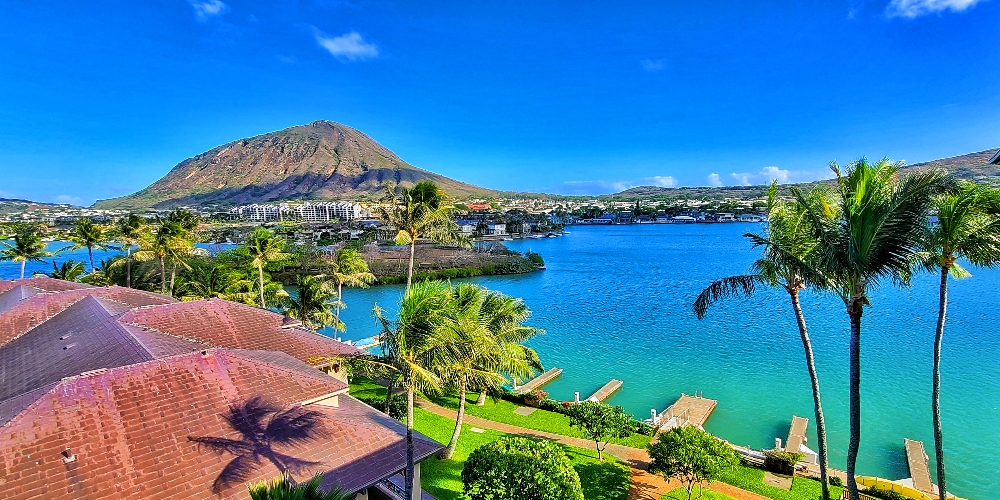Here is a broad sweeping statement lacking analytical detail:
Buying your Hawaii home makes more sense than renting when you are committed to living in the same home for a minimum of 5+ years, unless your rent is unusually affordable, and you aggressively invest your saved cash with escape velocity to reach financial orbit.
The problem is that many don’t consistently save and invest.
Escape velocity is the minimum rate of investment growth that is required to reach financial orbit.
Financial orbit is when your investments pay all your living expenses for the rest of your life. That’s when you work for pleasure only.
I moved to Hawaii in 1991 and recognized Hawaii as the finest place to live on the entire planet. I committed to finding a way on how to manage Hawaii’s high cost of living. I determined at that time that I needed to become an expert on how to achieve both:
- owning my home, and
- investing aggressively to quickly reach financial orbit.
Instead of renting a more affordable home and saving money, many end up renting a more luxurious home with no net savings. Instead of aggressively investing the cash they saved by not buying, many end up spending it.
Hawaii has always been one of the most expensive housing markets for buyers and renters. I know Hawaii renters that could afford to buy a home but they have been waiting to buy until it becomes more affordable. Really? When might that be?
See related article: How To Buy Hawaii Real Estate When The Market Is So Expensive
Some have been waiting for 5, 10, 20, even 30 years and longer. Many don’t aggressively save for an eventual home purchase, nor do they invest in income-producing assets that could get them to financial orbit.
Instead, they choose instant gratification. They upgrade their lifestyle by renting a home that is bigger or more expensive than needed.
The reasons are psychological. Home buying versus renting requires:
- more responsibility, and
- a long-term financial commitment. People are having difficulty with both.
You may think your readiness to buy improves over time. But that might only be true if you make the necessary sacrifice to save for the purchase. Are you?
Some make $300K+ in income per year and adjust their lavish lifestyle to their growing earning potential while still carrying debilitating debt. The lack of savings still prevents them from buying a home.
Our brain prioritizes instant gratification over long-term benefits. That can lead to financial disaster. How about practicing self-control? Select broccoli instead of sugary cake now. Remember the Stanford marshmallow experiment?
It’s prudent to start your financial planning early. Too often it gets pushed back until it gets progressively more difficult to catch up.
Defining The ‘Minimum 5+ Years’
Back to the initial question… Both, buying and renting, can make sense, but at different times. The outcome is binary, either you buy, or you rent. However, to decide your preference at the time, you must consider your circumstances and your assumptions about the economic future. That’s the gray zone.
Variables include:
- What is the outlook for the supply/demand ratio when buying or renting?
- What is your outlook on your future earning potential?
- What are your future needs for commuting or bigger/smaller living space in the future?
- What are your willingness and ability to seek maximum investment returns with savings?
A few of these variables are within your control, but many of them are not.
Instead of defining the minimum 5+ year commitment, the ‘when’ becomes more of a sliding scale.
The better, although, less precise answer is, the longer you are committed to living in a neighborhood, the greater the probability that the benefit of ownership outweighs the benefit of renting.
In Honolulu, the housing supply is short and demand is never-ending. I predict that both rents and property values will increase with little relief in sight.
Since I committed to living here, I decided to sacrifice and bought as soon as I was financially able. It required strict budgeting and buying a modest 1-bedroom starter condo that was sufficiently adequate in quality and size in the location I desired. That was all I could afford in 1995 and I would do it again today. A few years later, I bought a larger 2-bedroom condo and turned my initial condo into a cash-flowing rental. Rinse and repeat, I did it again. I have no regrets. I guess it all worked out.
Conclusion
Determine if you are committed to living in your home for at least 5 years and buy if you can afford it. Make sure the property meets your needs. If buying requires a compromise, consider compromising on size rather than location. The best value could be buying the most affordable home in the most desirable neighborhood you can afford. Live within your means and continuously save and invest before you spend.
________________________________
— We don’t just write about this stuff. We are expert realtors specializing in representing buyers and sellers of real estate in any market condition. We are committed to providing the most excellent service available on the planet. We love what we do and look forward to assisting you too!
Contact us when you are serious and ready. We are here to help.
________________________________
Also…, we want to make this The Best real estate website you visit. We love to get your feedback on how we might improve. We are humbled by your support and remain committed to constant learning and growing with you. ~ Mahalo & Aloha


Great article and many good points. I am grappling with a special situation due to my age. I am approaching 80 years old and with my wife plan to retire in Honolulu. Financially we are well off
( at least we would be on the mainland ) with close to seven figure cash on hand, good Social
Security payments and two investment properties paying rental income. With Hawaiian pricing
it is nearly impossible to get a newer, nice and halfway spacious condo without spending all our available cash. Coming from a 3000 sqft spacious home it is difficult to imagine life in a “starter
condo”. That’s really not acceptable nor realistic. I am afraid that with these special conditions
a rental even approaching the luxury segment is about the only or at least the best possible
scenario even when considering the minimum 5+ years commitment.
Great article. Thanks for sharing this.
Aloha Dave!
You are welcome.
May you benefit and prosper.
Let us know if there is anything else we can do for you.
We are here to help.
~ Mahalo & Aloha